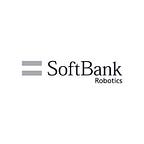Interview with Nicolas Beucher, Product
At SoftBank Robotics America (SBRA) we build robots, but our biggest strength is our people. Through the Behind The Robots series we hope to showcase the passion and drive of SBRA employees from a wide variety of backgrounds, geographies, and skill sets, who have come together to make Pepper a uniquely human humanoid.
Today, we’ve interviewed Nicolas Beucher, who supports the vision for Pepper and her user experience.
SBRA: What is your role at Softbank?
Nicolas: I drive the product vision of how we want Pepper to interact with humans (and vice-versa).
SBRA: That’s a cool job. How did you end up here?
Nicolas: My background is actually pretty unusual. I started off with a law degree, but ended up spending about ten years in the music industry. From there, I went on to get a Bachelor’s degree in communications and PR, before moving into robotics. My entry into robotics was with a surgical-focused company, and then I spent a few years at Apple. Finally, I ended up at Aldebaran, where Pepper was created. Ultimately, we were purchased by SoftBank, where we continue to develop Pepper today.
I think a lot of things had to come together to make my career possible. The four years at Apple plus time spent at a surgical robotics company were very important, and then of course my music was also instrumental.
SBRA: What about your background makes you the most successful at SoftBank?
Nicolas: I liked being at Apple because I enjoyed pushing products and experiences that actually change the way people live. When I joined Aldebaran, before it was Softbank Robotics, and got to work with Pepper, I felt that we would have the same opportunity to really make big changes in the way people live their lives.
Because my work is really design-focused, I actually think the music helps me the most. If you do electronic music you have to be a nerd because it’s all about computers. Plus, music is all about design and experience. That experience-oriented mindset is important to bring to Pepper, because you can’t just “science” your way to a good robot.
SBRA: What are some of your goals for Pepper?
Nicolas: My goals for Pepper have always been somewhat the same. I want to make the end-user experience great. As a product person, I focus everything around delivering a user-centric approach. Every piece of technology embedded in Pepper — whether software or hardware — starts with the idea it has to serve a purpose, or improve an interaction.
SBRA: What is one problem you’re currently working to solve?
Nicolas: Currently, my focus is on improving Pepper’s ability to detect visitors. This is important because, while we talk a lot about Pepper attracting people, Pepper can only attract you if she detects you first.
Detection is actually a big problem to solve in the field of robotics. Teaching a robot to identify a person in a public setting where there is a lot of light variance, a variety of different people at different heights, wheelchairs, bikes, and other environmental conditions, is not a straightforward problem to solve.
There is a progression: first Pepper detects a blob, and then she has to differentiate the blob from a pillar, or an object. Next, she has to recognize and take into account all the different ways humans can present themselves to make sure the figure approaching is a person. All of these things can make it difficult for Pepper to pick up on an individual, but overcoming these challenges is a critical piece of her success. And we’re lucky to have amazing engineers in Paris tackling that challenge.
SBRA: What is challenging about designing for humanoid robots?
Nicolas: Pepper is such a unique platform that designing for her is actually a lot of fun. But one of the main challenges about robotics in general is that people have so many expectations around robots. When the team designs for Pepper we don’t just have to think about what Pepper can do, but how people will respond, and how Pepper’s behavior will align — or defy — people’s preconceived ideas.
SBRA: What surprises you about Pepper?
Nicolas: People’s reactions to Pepper are always fun and surprising. When people meet Pepper for the first time, they spend the first 20–30 seconds just thinking, “Hey! It’s a robot! Let me take out my phone!”
We actually have to allow time for that surprise and awe when we design interactions for Pepper, because even a VP of a huge Fortune 500 company who understands Pepper as something very rational still has that “wow” moment.
We take it for granted sometimes because we see robots every day, but a huge majority of the world’s population has never seen a robot in real life.
SBRA: So what advancements in robotics can we expect to see in the next five years?
Nicolas: I’m actually cautious about predicting the future of robots. People always think they know what technology will look like, and how we’ll use it in our lives, but there is a big butterfly effect that we just can’t predict. I mean, could you have imagined something like Uber 10 years ago? Not only the app on the phone, but the whole service that comes with it, and the economy and business model that has been built around it?
What I can say is that, within the next 5 years, I think people will finally be used to robots. For most people, Pepper is the first robot they have ever met, and I think as people get used to machines and being surrounded by robots, we’ll see a big cultural shift. I’m excited that we get to be a part of it, get to see the shift as it happens, and, in many ways, we really get to drive it. That’s one of the most exciting parts about my job, and one reason I love working at SoftBank.
